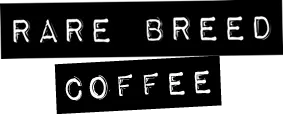TDS (total dissolved solids) has been a litmus test for coffee brewing for decades. The Coffee Brewing Handbook is still the recommended guide. However, it is seldom used on the ground level in cafe/restaurant settings (pun intended). TDS is a direct correlation between extraction of flavor out of the coffee grounds and concentration of that flavor in the cup. The reason it is important has to do with that direct correlation. Brewed coffee and espresso quality is a direct relation to the quality of ingredients and a specific recipe and lands the TDS in the Optimum Balance zone on the Coffee Control Brew Chart. (We are assuming that bad, or cheap, or old coffee will result in a bad cup, no matter how consistent or exact the TDS may be.)

SCAA Handbook Coffee Brewing
Coffee Brewers
The reason TDS is not widely used in the field is due to several reasons. 1. The testing equipment is pricey. 2. Modern automatic drip brewers are very consistent in brewing coffee. 3. It is an extra step for the staff.4. “We are talking about a simple cup of coffee, not rocket science” mentality. Coffee brewers have come a long way, but from our own experience, brewer consistency does decline with age. Temperature probes start to fail or get compromised by scale. Dose can change with a power outage. New coffee brewers can come with a lot of bells and whistles, but they also have to be programmed to work efficiently.
TDS is Important
TDS is important because it is what makes a cup of coffee. Without TDS, a cup of coffee would be a cup of hot water. TDS is the flavor. It is what makes coffee…coffee. There are tried and true ratios of water to coffee grounds that generally equal a good cup of coffee. We work with our customers to brew within those ratios. However, there are a few more factors that go into making that expected “Optimum Balance” range.

Coffee Brew Control Chart
Factors in Brewing
The factors in brewing to meet the TDS standards are:
1. Dose to water ratio
2. Grind particle size
3. Turbulence: physical action of brewer that hot water onto the grounds
4. Contact time: how long water is in contact with the bed of grounds
5. Water Temperature: brew temp is critical in proper extraction
Again, most of the standard grinders and brewers shift several of those factors of brewing into constants such as: grind size, turbulence, water temp and contact time. The only one we, as operators, general control are dose to water ratio. However, many try to save a few pennies by under dosing and grinding very fine.
Drawbacks to Manipulating the Factors
The main drawback to manipulating the factors is over extracting coffee that is ground too fine. Coffee is cellulosic, and those cell walls start to break down when in contact with hot water for too long. They have a woody, papery flavor that is not pleasant. When coffee is ground too fine, water penetrates the cell walls and breaks down the fibers more quickly. (This is what happens in a percolator.) The tried and true guidelines are tried and true for a reason. They generally work.
TDS Testing

VST Coffee Refractometer
We are implementing a testing and recommendation program for all our accounts. Our Operating Procedures are getting finalized, and we will start visiting our accounts to assess brewed coffee and espresso quality. This is a service we provide to create benchmarks for our accounts on coffee quality and consistency. We want our accounts to succeed and offer a great cup of coffee, every time. The only way we can do that is objectively assess, record and work on areas that need modification. We are excited to finally begin this level of customer service, as it has been in the works for a very long time. As a business partner with our wholesale accounts, it is important that we both grow and continue to improve. Emeran will be assisting with the new Golden Cup class in April at the annual Specialty Coffee Association of America (SCAA) trade show in Atlanta. She will be certified to test accounts and extend the Golden Cup Brewing certificate when she returns.

